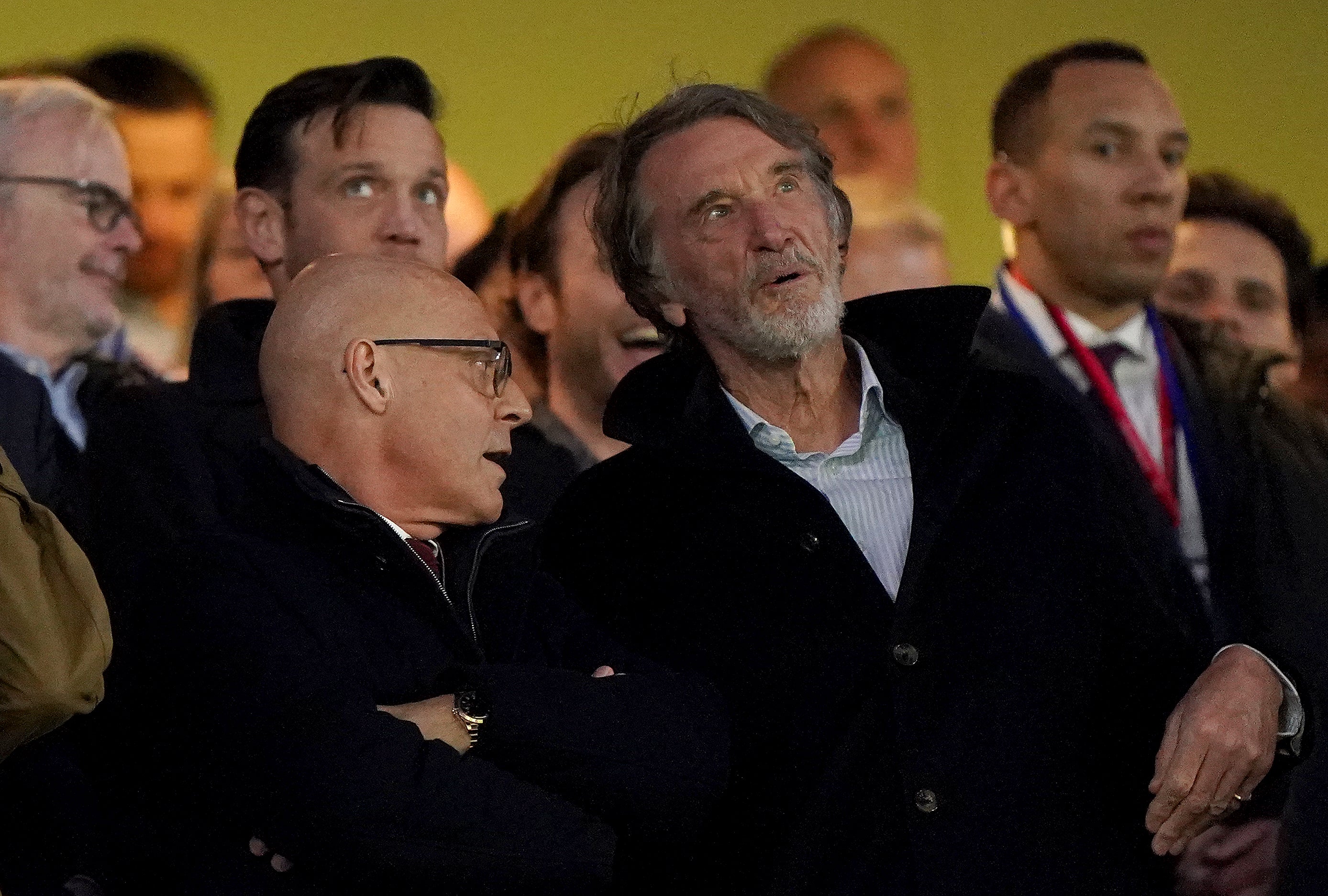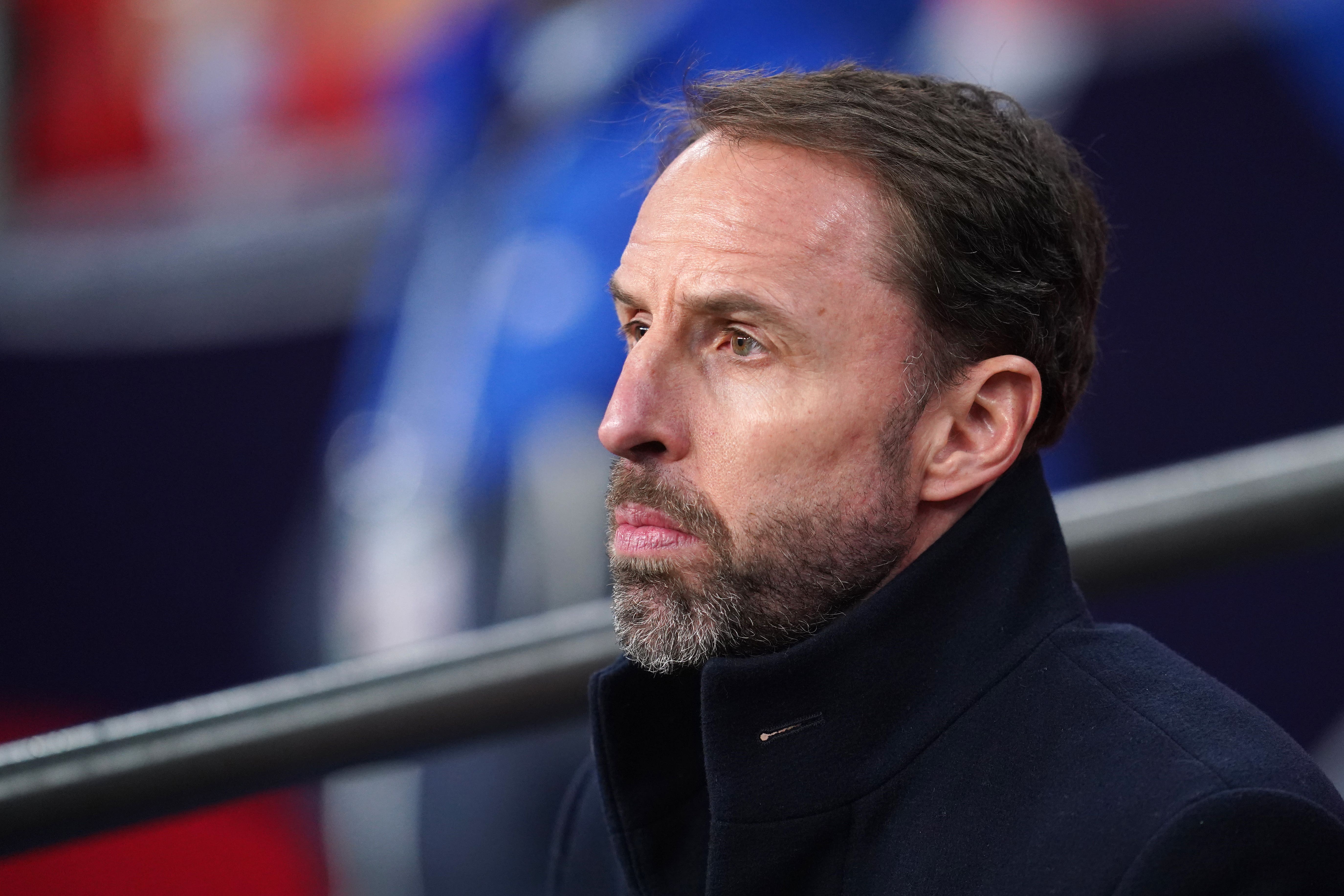Erik ten Hag prepares to face his most painful contrast as Man Utd future looks bleak
Jurgen Klopp’s Liverpool are everything Ten Hag’s Manchester United wish they were, writes Miguel Delaney, as both clubs face a likely summer hunt for a new manager


Your support helps us to tell the story
From reproductive rights to climate change to Big Tech, The Independent is on the ground when the story is developing. Whether it's investigating the financials of Elon Musk's pro-Trump PAC or producing our latest documentary, 'The A Word', which shines a light on the American women fighting for reproductive rights, we know how important it is to parse out the facts from the messaging.
At such a critical moment in US history, we need reporters on the ground. Your donation allows us to keep sending journalists to speak to both sides of the story.
The Independent is trusted by Americans across the entire political spectrum. And unlike many other quality news outlets, we choose not to lock Americans out of our reporting and analysis with paywalls. We believe quality journalism should be available to everyone, paid for by those who can afford it.
Your support makes all the difference.As Erik ten Hag walked into the Manchester United dressing room, he knew what he wanted to say. He was deeply irritated by decisions players took at key moments in the 4-3 defeat to Chelsea, feeling these were the details on which the game turned.
That might be fair enough, if this wasn’t part of a much wider trend. Ultimately, far too many United matches under Ten Hag devolve into chaos. Most of them seem to start like that, as was the case at Stamford Bridge after just four minutes. If the problem really is players not executing what Ten Hag wants, it is probably more his problem than theirs, at least after two years. A fundamental of the job is literally to make them understand. Instead, nobody seems to really understand what Ten Hag’s system is. It is hard to describe, much less see.
The contrast with Sunday’s opposition is all too painfully obvious. Although half the players that Jurgen Klopp regularly puts out have been at Liverpool fc for the same amount of time or less than Ten Hag has been at United, they evidently get the manager’s system. They understand exactly what he wants. It obviously isn’t perfect yet, as so many freewheeling Liverpool games illustrate, but that is where a major difference lies.
Klopp’s team try to guide the chaos. Ten Hag’s team are abandoned to it.
The contrast to their last meeting, just four weeks ago in the FA Cup, makes this all too clear. It’s almost hard not to have sympathy with the way so many at United thought that could be a “turning point”.
Then, after a game that similarly went the distance, Antony scored an equaliser in the 87th minute before Amad Diallo scored a winner in the 121st minute. The emotion of it all felt like it could be transformative, and restorative.

Except, that’s the issue with seeking to surf momentum in the modern era of football. Ole Gunnar Solskjaer became far too dependent on this. It can of course be stirring but is in no way sustainable. It is certainly no substitute for a system that works.
So, far from a turning point for the team, United instead endured everything turning in the opposite direction. Having scored two late goals in their last game against Liverpool, they have now conceded three late goals in the two games since.
That is just what tends to happen when you constantly allow matches to develop like this. The point of all this isn’t to stage another debate about Ten Hag’s performance as Manchester United manager, though. It is really how this is all relevant to much bigger decisions.
During the Chelsea game, eyes constantly turned to Sir Jim Ratcliffe in the executive box. He was constantly on the screen. This wasn’t what he paid a minority stake for.
The widespread feeling in football is that United have already made their decision, and that Ten Hag will go in the summer. Even regardless of anything to do with performance, it would just be entirely in-keeping with a “high performance” minded set-up that wants to foster a sense of clean slate. It should be stressed that there has been a willingness to wait and see. They don’t want to move on someone who might well work out. It’s just performances have not bolstered his arguments over the past few months.

There are two connected reasons why no one can yet say with absolute certainty that Ten Hag will go, though.
One is that they don’t yet have their football structure in place. United would ideally have such decisions settled by a chain of expertise that goes through eventual technical director Dan Ashworth and up to chief executive Omar Berrada. With some of the most senior appointments on gardening leave and other key roles still to be filled, though, United still don’t have that clarity of structure. Ten Hag also personally works well with those there.
The second is that there are no obvious replacements – although this is admittedly less important. The manager market is in an interesting place right now in that it’s clearly going through a transition, partly tactical, partly personnel-driven.
There was about a decade when there was a clearly defined “elite” band. They were Pep Guardiola, Jurgen Klopp, Antonio Conte, Thomas Tuchel, Carlo Ancelotti. A few others then had arguably just fallen out of that bracket or were on the brink of rising up into it. They included Jose Mourinho on one side and Mauricio Pochettino on the other.
Now, as a consequence of these coaches dominating the major jobs and the financial stratification of the game, a next generation of managers haven’t had the chance to prove themselves at that elite level. It makes a series of potential appointments look little more than punts, no matter how talented they are. Being able to “wear the suit” of a major club is a punishing responsibility, that many technically adept coaches wilt under. It does still come down to personal charisma in a lot of cases.
Amidst this uncertainty, a lot of different influential voices at United like different options. Sir Dave Brailsford is a big fan of Gareth Southgate. Ratcliffe himself has long been intrigued by Graham Potter. Others think Julian Nagelsmann is worth trying out in a structure that allows him to just coach.

The situation is of course complicated by the fact that Liverpool will also be looking for a manager this summer, albeit in totally different circumstances. They absolutely don’t want their man to go. Klopp has made it, however, so that more of the highest-rated coaches would prefer the Liverpool job.
That points to another contrast that is maybe indicative of the modern history of the clubs, although something that Ratcliffe is trying to rectify.
When both clubs were put up for sale in late 2022, Liverpool eventually had to come off the market, in part because the few viable suitors were more interested in United.
Now, with both clubs potentially looking for managers, Anfield is a much more attractive destination. Ruben Amorim, who has become the highest-rated target among a number of major clubs given Xabi Alonso’s decision to stay at Bayer Leverkusen, is actively interested. The Portuguese currently favours Liverpool over Barcelona, who had been focusing on Amorim.
Old Trafford, at the least, is currently more attractive than Camp Nou. Ratcliffe still has a lot of work to do to change perceptions that persist from Sir Alex Ferguson’s retirement, however.
That points to another difference.
Klopp may be a hard act to follow but he is leaving behind a much more forgiving situation. It isn’t like with Ferguson. The squad has been replenished. The structure around the manager has already been overhauled and put in place.
Liverpool have arguably learned the lessons of United, as well as their own history. They knew this was about much more than just replacing one man, especially when he is so totemic.

There is another curiosity from that history, though, that this fixture touches on.
It is just another in the long line of United-Liverpool games where one team is going for the title and the other must seek satisfaction in trying to stop them. It is remarkable how often this happened for England’s two most successful clubs.
This type of match is very much the standard, rather than any kind of all-or-nothing direct face-off. The latter has actually almost never happened. Even 2009, when Liverpool won 4-1 at Old Trafford, only saw United win the league.
The Merseyside club now go back to that stadium with a very different mindset. They have lost the last two at Old Trafford. Klopp won’t even bring this up with his players, as he doesn’t think this type of thing should matter in the slightest. It does matter to the fans, though, who suddenly have this feel of something almost supernatural happening when they go to their greatest rivals. Liverpool supporters know they’re much better than United right now but that offers absolutely no guarantees it will matter on the day.
You only had to look at the FA Cup game.
It’s at points like this people would usually talk about how much it matters for Ten Hag, especially as regards his future. That might not be the case in the slightest, though. That FA Cup game might have proved that.
While nobody can say for certain what decision INEOS will ultimately take, they won’t be basing that on any individual game, no matter how chaotic.
Join our commenting forum
Join thought-provoking conversations, follow other Independent readers and see their replies
Comments